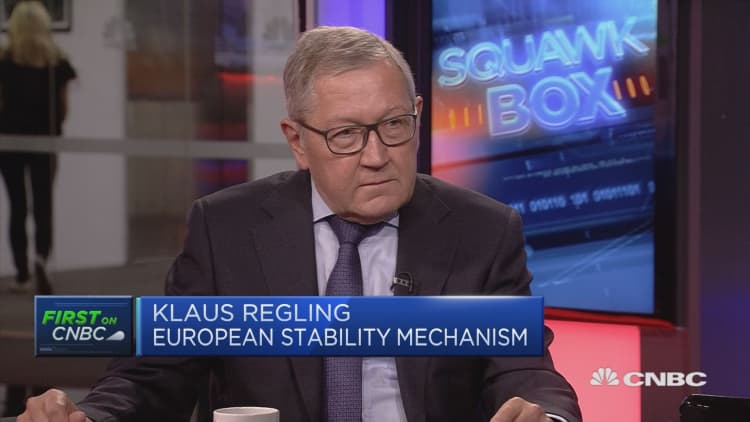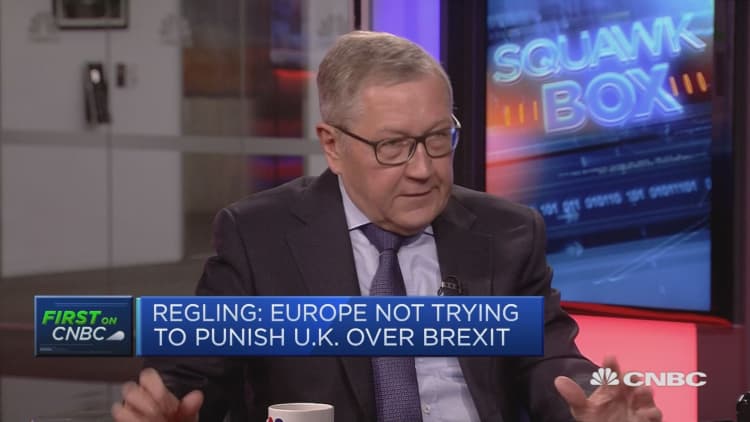
The upcoming federal election in Germany is not going to throw Brexit negotiations off course, but the U.K. needs to face the reality that Brexit is not the greatest priority for the EU, according to the head of the European Stability Mechanism (ESM).
The EU will remain united in its approach to Brexit negotiations regardless of the outcome on September 24, Klaus Regling, managing director of the ESM, told CNBC Tuesday.
"I see a great unity among the EU member states and I don't think the German election is going to derail that," Regling noted.
However, he insisted that the vote, the last of three major elections across Europe this year, shows that that EU member states have other equally important issues on their agendas.
"They (the EU) have deliberately decided to be very transparent, so there should be no surprises," Regling continued, referring to the aftermath of Germany's vote. "But, in general, in this country (the U.K.) people must realize there are also some other priorities on the continent.
"Brexit seems to be the only topic in this city, and maybe in the country. In the continent it's quite different: it's one topic among many."
Germany follows the Netherlands and France in holding its general election this year. The result – the continued reign of incumbent Chancellor Angela Merkel – appears all but guaranteed, though the particulars of her final government will take some ironing out. The complex nature of the German electoral system means that she is likely to have to strike a coalition deal with one or more other parties in order to form a majority.
This could possibly alter some voices within the Brexit discussions, though it is unlikely to have any major impact, according to Regling, who says the overall EU consensus will prevail.
"I sometimes hear that people on the continent want to penalize the U.K. That's also not true. There are clear interests on both sides and I think the remaining EU members do not want to compromise on their core principles."
Notably, the EU is looking for continued citizens' rights for EU members living and working in the U.K, a "unique" solution to the Irish border, and a resolution on the sum of the U.K.'s final Brexit bill.
European Monetary Fund to emerge 'soon'
Germany's election will, however, have clear implications for the union's plans for further integration.
Should current German Finance minister Wolfgang Schauble remain in position, Regling suggested that he will work closely with French President Emmanuel Macron to form a European Monetary Fund – a concept backed by both leaders as a more efficient way of managing euro zone crises.

"I think there is more good will now on both sides than I've seen in a long time," Regling noted, referring to longstanding clashes between France and Germany on the EU.
"President Macron has mentioned the European Monetary Fund probably more often than the German government. So on that point I see probably a pretty easy consensus emerging soon."
A European Monetary Fund would likely assume some powers from the ESM, which provides financial assistance programs to Eurozone member states during times of financial difficulty and has provided a series of bailouts following the financial crisis of 2008.


